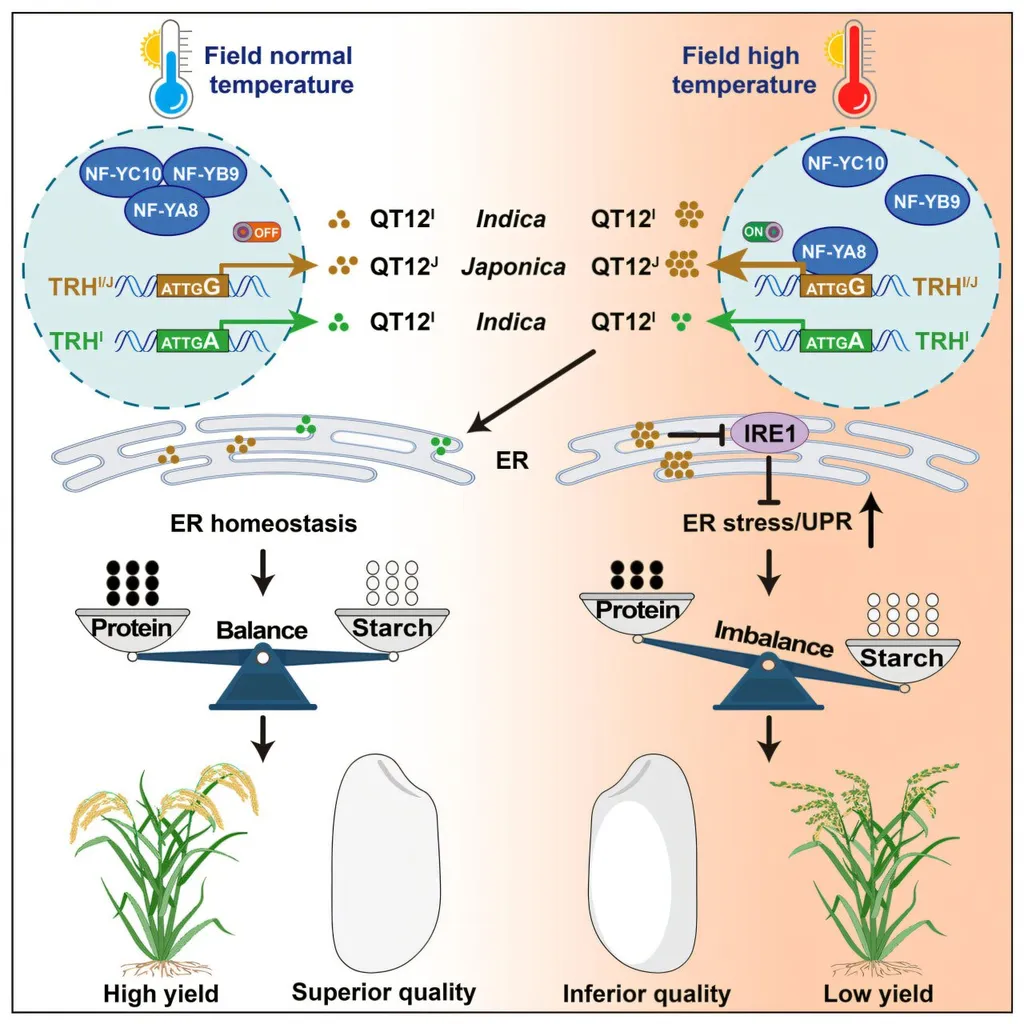In the heart of China, researchers at the College of Plant Science and Technology, Huazhong Agricultural University, are making strides in understanding how rice plants cope with heat stress, a critical issue as global temperatures rise. Led by Md. Atik Mas-ud, a team of scientists has identified six key genes that could pave the way for developing heat-tolerant rice varieties, potentially revolutionizing agriculture and food security.
Rice, a staple food for over half the world’s population, is highly sensitive to heat stress, which can lead to significant yield losses. Small heat shock proteins (HSPs) are known to protect plant cells from thermal damage, but until now, the specific key genes (KGs) involved in this process have remained elusive. Mas-ud and his team have changed that, focusing their research on 23 critical small HSPs in rice.
Using advanced algorithms and gene ontology enrichment pathway analysis, the researchers identified six uncloned key genes: OsHSP23.6, OsHSP26.2, OsHSP22.3, OsHSP18.6, OsHSP23.2, and OsHSP16.0. These genes were found to be heat-induced and play crucial roles in rice’s response to heat stress. “These key genes are not just heat-tolerant; they are heat-induced, meaning they become active when the plant needs them most,” Mas-ud explained.
The team’s findings, published in the journal ‘Discover Plants’ (translated from Chinese as ‘植物发现’), revealed that these genes are involved in responses to reactive oxygen species, heat response, unfolded protein binding, and protein folding. Moreover, the expressology tree analysis suggested that these genes might have various functions under different development and stress conditions.
The implications of this research are vast, particularly for the agricultural sector. With climate change exacerbating heat stress conditions, developing heat-tolerant rice varieties could secure food supplies for millions. “Understanding these key genes is a significant step towards breeding rice that can withstand higher temperatures,” Mas-ud noted. This could lead to more resilient crops, reduced yield losses, and ultimately, enhanced food security.
Beyond agriculture, this research could also impact the energy sector. Rice fields are known to be significant sources of methane, a potent greenhouse gas. By improving rice’s resilience to heat stress, we might also reduce the stress-induced increase in methane emissions from rice paddies, contributing to climate change mitigation efforts.
The identification of these key genes opens new avenues for genetic engineering and breeding programs aimed at enhancing rice’s heat tolerance. As Mas-ud and his team continue their work, the future of rice cultivation looks a little brighter, even in the face of rising temperatures. This research not only advances our understanding of plant biology but also offers practical solutions to some of the most pressing challenges in agriculture and climate change.

